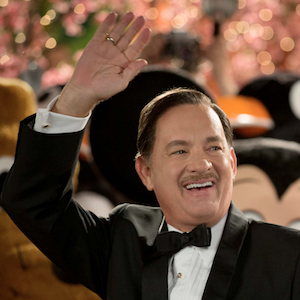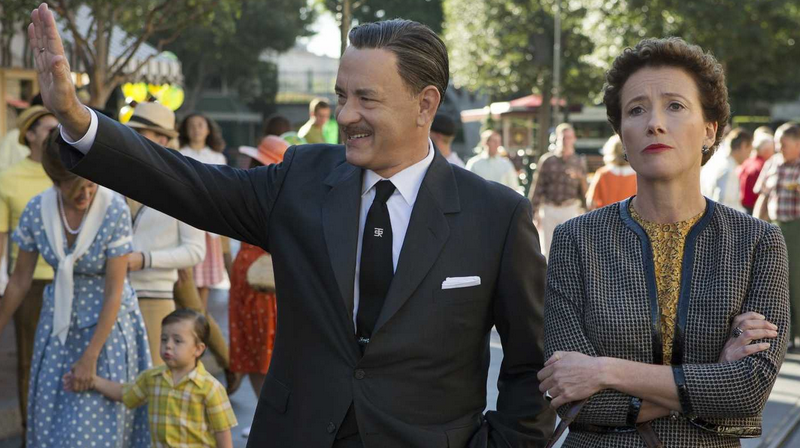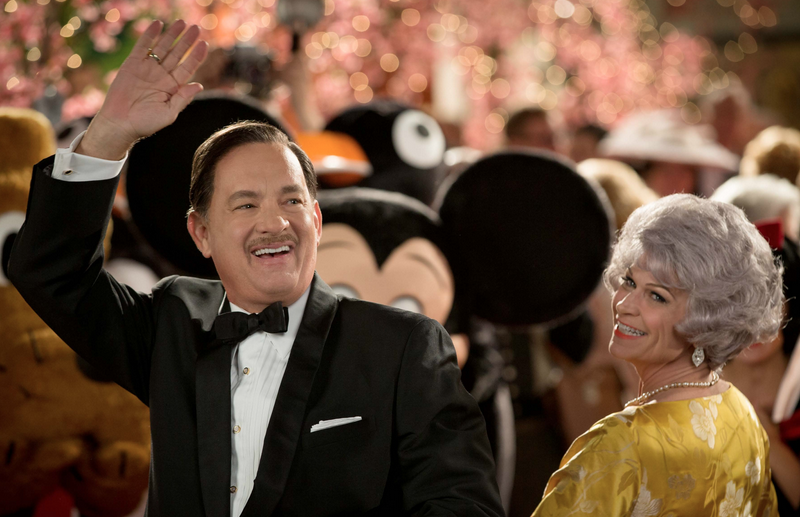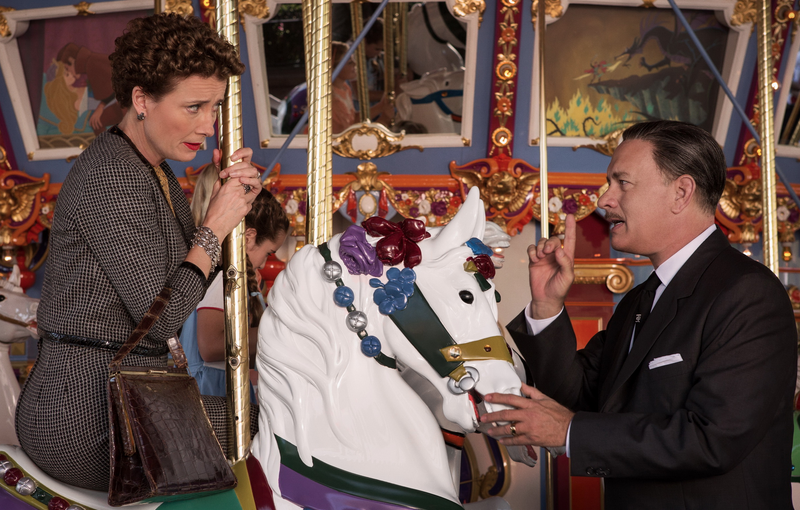Saving Mr. Banks Review
PL Travers wrote a book called Mary Poppins. Walt Disney read it to his kids and fell in love with it, spending twenty years trying to get Travers to give him permission to make the movie. Ultimately, she relented, allowing Disney to create the phenomenally successful movie, winner of five Oscars, one Golden Globe, two Grammy Awards, and one Writers Guild of America Award. “Saving Mr. Banks”, starring Tom Hanks and Emma Thompson and directed by John L. Harlock, is the story of how Disney finally convinced her to give him the rights.
As I was watching this movie, I remembered an episode of The Simpsons “A Star is Burns”, where Mr Burns submits an autobiographical film to a local film festival. The film portrays him as both ET and Jesus, and was roundly booed off the stage as “self-indulgent tripe.” This kept rattling around my head the whole time I was in the theatre. To its credit, Saving Mr Banks is far more subtle than Mr Burns and Señor Spielbergo, but only just.
From a storytelling perspective, this film is pretty much perfect, almost flawless. The pacing flows, John L. Harlock’s direction is great, Tom Hanks and Emma Thompson are amazing, and Kelly Marcel and Sue Smith’s script is sharp. Taken entirely on its own merits, the film is great. The problem I have is one that many historical movies face.
Disney, as a company, is absolutely (and at times hilariously) dedicated to preserving its image. All companies are, but Disney is well-known for being enthusiastic about protecting itself, from fighting to keep Mickey Mouse out of the public domain, to suing a nursery school for painting a mural with their characters, to creating self-destructing DVDs. Of course a movie featuring Walt Disney himself, made by Disney, is going to cast him in a positive light. The problem stems from the depiction of his meetings with Travers. Disney is suave, smooth, charming, a perfect gentleman, and she is a neurotic, shrieking mess, who is ultimately saved by the House of Mouse, even cuddling up to a giant Mickey Mouse plush toy on her bed. Here, she is moved to tears by the movie and is comforted by Walt himself. In reality this never happened. Travers was snubbed at the 1964 premiere which she had to get permission to attend, a lot of her input overruled (even though her contract supposedly would give her final say). If she did start crying during the movie, they were probably tears of rage. It’s implied that her father died of alcoholism, when in fact he died of influenza. “Saving Mr Banks” rewrites history to make Disney come off as the bigger person and to diminish her.
It all comes down to image. “Hate the creator, love the creation” is becoming more and more prevalent across many different mediums. Disney is saying “we took this and we made it better, despite all the opposition thrown at us by one lone woman. You don’t need Travers, you got a better version. A version that, conveniently enough, gives us money.” Honestly, the whole thing comes off as a Faustian morality tale. She is charmed and swayed by money and given promises that were not honoured. One must wonder how Escape from Tomorrow (a guerrilla film shot in both Disney-land and Disney–world and edited in South Korea for safety) will fare in the face of the legal powerhouses Disney employs.
From a technical perspective, it’s great, but I cannot recommend it. It rewrites history to attack Travers, belittles her accomplishments and life, outright lies about her family, and puts Walt Disney on an even higher pedestal than he already has.
Donal O’Connor
@tomhanks, @DisneyPictures





